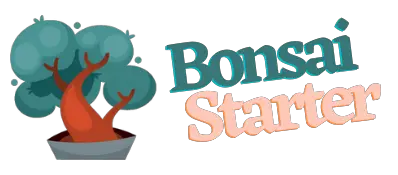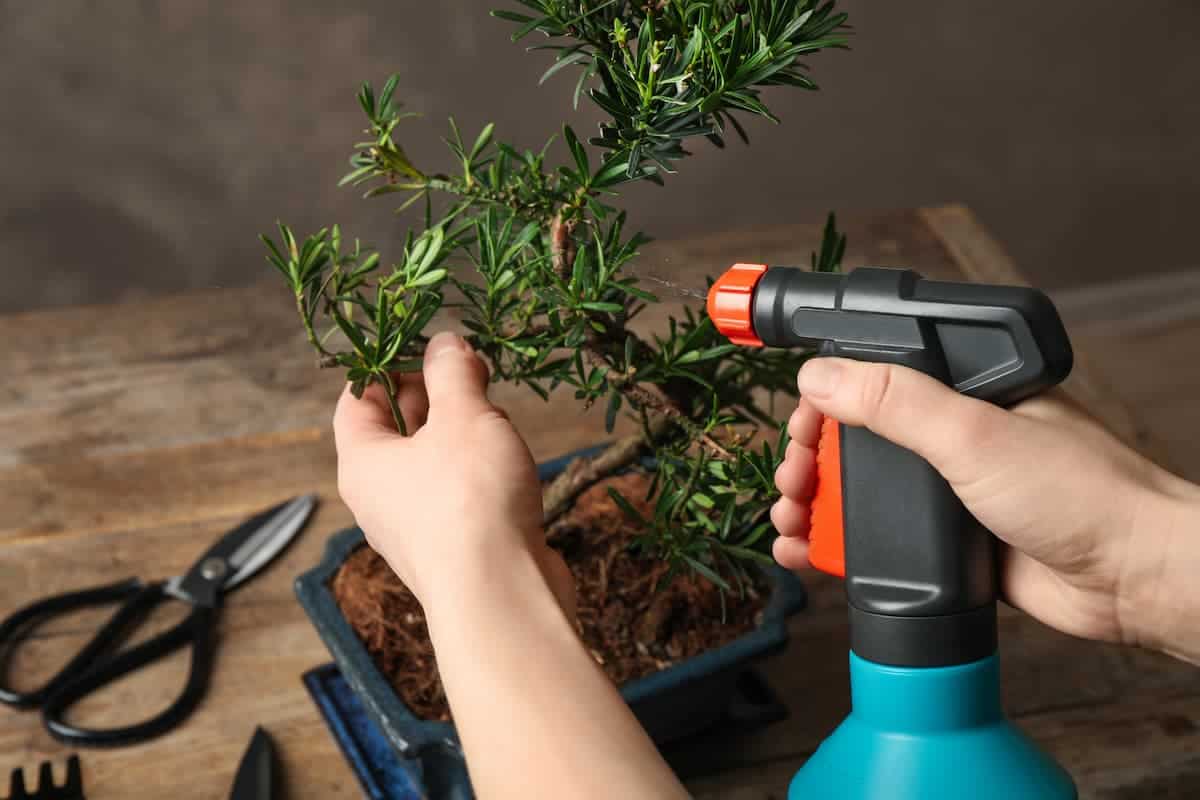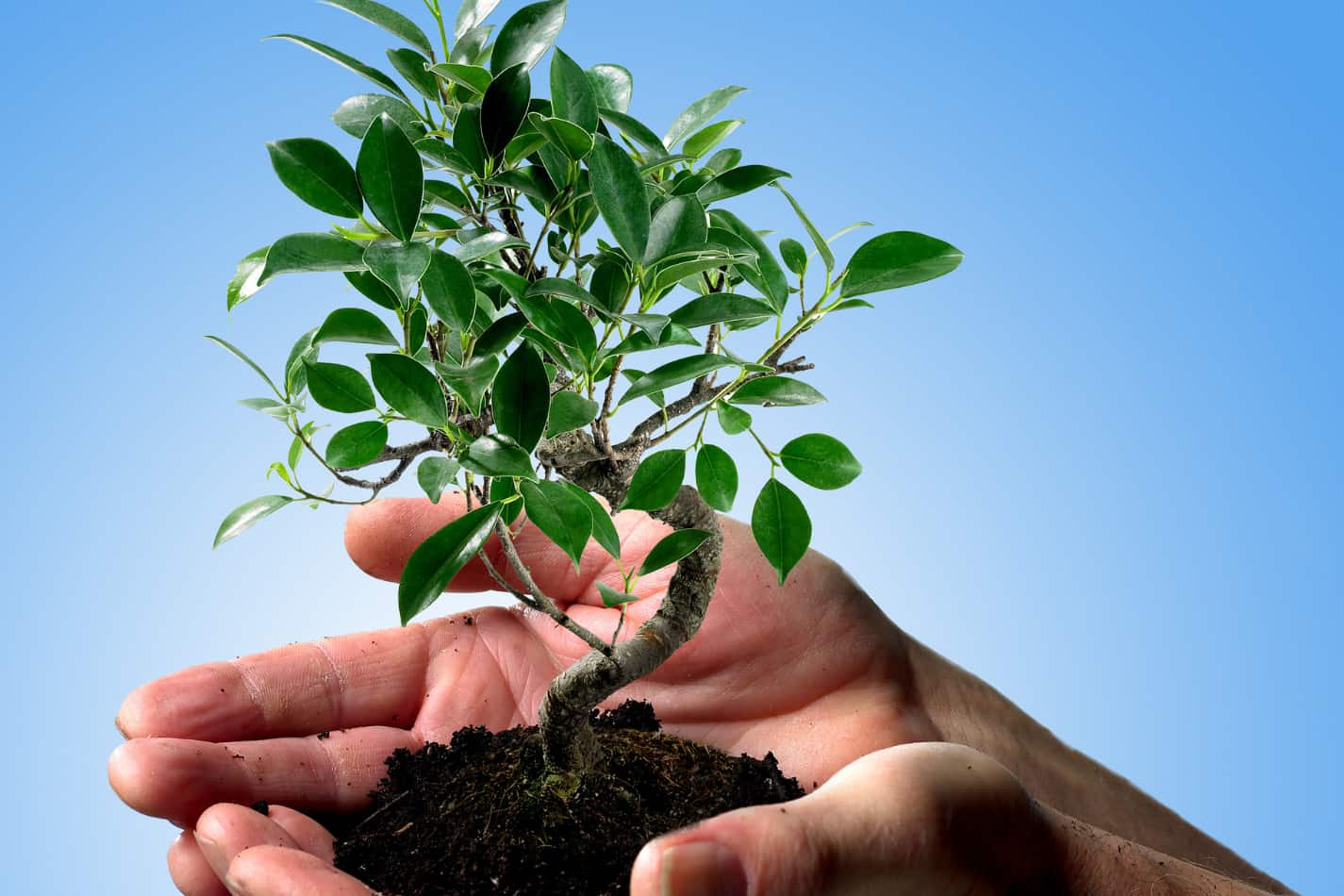You may have often noticed bunches of ants in or around trees. Ants love to stay near places that contain something sweet. Bonsai trees are no exception to this! Naturally, the ants will find their own destination for these plants. Now, the important question is, are ants bad for Bonsai trees?
To be fair, ants do not harm bonsai plants themselves. They do, however, carry aphid eggs, fungus, etc. that can harm your bonsai. Uprooting the ants becomes essential in this situation. Otherwise, the longevity of your plant can be jeopardized.
Bugs, insects, and other pests are harmful to your plants and trees. Bonsai plants require far more love and care than any other type of plant.
As a result, as a bonsai owner, you must know if ants can harm your trees, why the plants attract them, and how to keep them away!
So, to know in detail, please read the entire article.
Why Do Bonsai Plants Attract Ants?
Bonsai plants, like any other plant, can contain honey or nectar. Besides, the plant’s substance is a storehouse of food materials for the plants, which contains traces of sweetness. These can attract ants as well!
Basically, even if you look around you, you can see ants crawling to places that have something sweet nearby. Ants love the sweetness, and they can’t just help it!
The Science Behind Bonsai’s Attracting Ants
Ants may be small creatures. But they have the sharpest smell sensations, and they can easily detect sources of sweetness nearby. Whenever you enter a garden, the one insect you will see is an ant. They love to crawl near plants in search of sweet food.
The plants store glucose as their reserve food. Some plants even have nectar or honey at the base of the pedicle. Besides, the plants may also contain fructose, sucrose, etc.
All these are simple sugars and taste sweet. Their olfactory sense is superior to that of humans. As a result, even the slightest whiff of something sweet will tempt them to pursue it.
Moreover, any plant, even a bonsai, has a sweet aroma. This aroma spreads in the air, mixing with other indistinct smells. So it becomes hard to distinguish between them. As a result, the first creatures they attract are the ants!
Can You Stop Your Bonsai From Attracting Ants?
You may take necessary measures to prevent the growth of ants near your Bonsai trees. But you can’t stop the aroma from spreading in the air. The reserve food in the plants will always attract ants!
Sweet foods are enticing to ants. The number of ants will rise if your Bonsai garden is surrounded by other flowering plants. Flowering plants contain honey, which will attract more insects!
You may be able to decrease the number of ants to some extent by reducing the number of flowering species around your bonsai trees. You’ll never be able to prevent them from coming back to your bonsai, though.
Do Ants Harm Bonsai Trees?
No, ants themselves do not harm your precious Bonsai plants. But they are capable of carrying objects, which could pose a threat to your bonsai.
As mentioned earlier, bonsai can be damaged by ants when they start to carry aphid eggs and fungi. Too many ants near the bonsai plants may be an indicator of something wrong with the plant. The ants carry these organisms with them, which harms the bonsai in turn.
Aphid Eggs
Aphids are very tiny insects. They are green in color, and they prefer to stay on the underside of leaves and shoots. The eggs they lay become hard to identify by naked eyes, and you can use a microscope to get a clear view.
Ants tend to carry the eggs of these aphids and transport them to various parts of the Bonsai. The eggs feed on nutrients from the plant and then start to multiply.
At one point, the eggs hatch into aphids, which start harming the bonsai. Aphids usually camouflage themselves with the stems and shoots. If you do not look closely enough, you won’t be able to spot them.
Your bonsai is the result of your years of hard work and patience. Any bad insect infestation can ruin it in a matter of days, so make sure to be careful.
Fungi
Ants can also carry traces of fungi on them. In the worst-case scenario, ants carry these microbes and transport them to the soil. Eventually, the whole soil gets ruined! You can spot moldy overgrowth on the ground if there is a fungal infestation.
Also, ants can penetrate through the shoots and roots. You can observe piles of dry wood dust or sand-like collections near the plant’s base when this happens. If the ants carry fungi on them while penetrating, they may leave the fungi inside the plant’s substance. The fungi multiply, and the whole tree gets infected at one point!
As a result, you will be able to see white or ash-colored growths on the barks or leaves. These are signs of fungal infestation, and the leaves may start to fall off or turn yellowish. Ultimately, the whole plant gets involved within a few days, and the Bonsai may die if not treated properly!
Protecting Your Bonsai From Ants
Ant infestations are hard to deal with if you do not know what measures to take! It depends on two things: preventing the attack of ants and protecting and treating your already attacked plants from further damage.
Infestations of bugs are common in the lifecycle of any plant. At some point or another, a plant will have to deal with bugs, insects, ants, worms, etc. But if you take proper care, avoiding such situations may become easier.
Prevent Ant Attacks On Bonsai
For this purpose, you can make a DIY insecticide solution to spray on your plant. Or you can simply buy some artificial chemical insecticide from the market. The easiest thing to do is to make some at home by yourself. It is cheap and saves you money!
For this, you will require some detergent, essential oils or Neem oil, and peppermint oil. Mix some detergent soap with water properly and make a saturated solution. To this, add traces of neem oil and if possible, add some peppermint oil.
Neem oil has antimicrobial properties and protects plants. Also, ants despise peppermint oil, and it naturally repels them. So, it comes in great use!
Now, take the mixture and spray it on your whole plant. Spray at every corner possible. Then wipe it off with a dry paper towel. It will work its charm, and your plant will be free from all sorts of ants and insects!
Remedy For Excessive Ant Infestation
Bonsai that are already facing ant problems need a perfect solution. The easiest way to treat this is to simply wash off the plant parts with clean water at first. So, take some fresh water and spray it onto every aspect of your Bonsai.
Of course, put a polythene paper over the soil first. Because when the water washes off the aphid eggs and fungi, you do not want them to fall off and contaminate the soil! It will be a lot harder to clean the soil.
So, spray properly and then wipe off with a paper towel. Then, dispose of the polythene along with the contaminated water in a safe location.
Use diatomaceous earth in your soil mixture. It is known to have some antimicrobial properties. If the soil is already contaminated, it is best to change it.
Some people also recommend dipping the whole Bonsai tree in water if it is tiny. Submerging the entire plant will wash off all traces of aphid eggs and other bugs. Then, you must dry the plant completely under strong sunlight. Otherwise, there is a great chance for the roots to start rotting!
The second method has its drawbacks and can hamper your plant’s growth overall. Overwatering kills any plant. So, it is safe to just spray some water and clean it yourself. It might take some time and effort, but it will save your Bonsai!
Conclusion
Bonsai trees live a really long time if you take great care of them. Some of the oldest bonsai trees are known to outlive their owners in some cases. All you have to do is protect the plants from all sorts of diseases and insects, like ants, etc.
So, are ants bad for Bonsai trees? By now, you must have answers to all your queries regarding it. Thank you for reading the entire article with patience. May your Bonsai live the longest!




